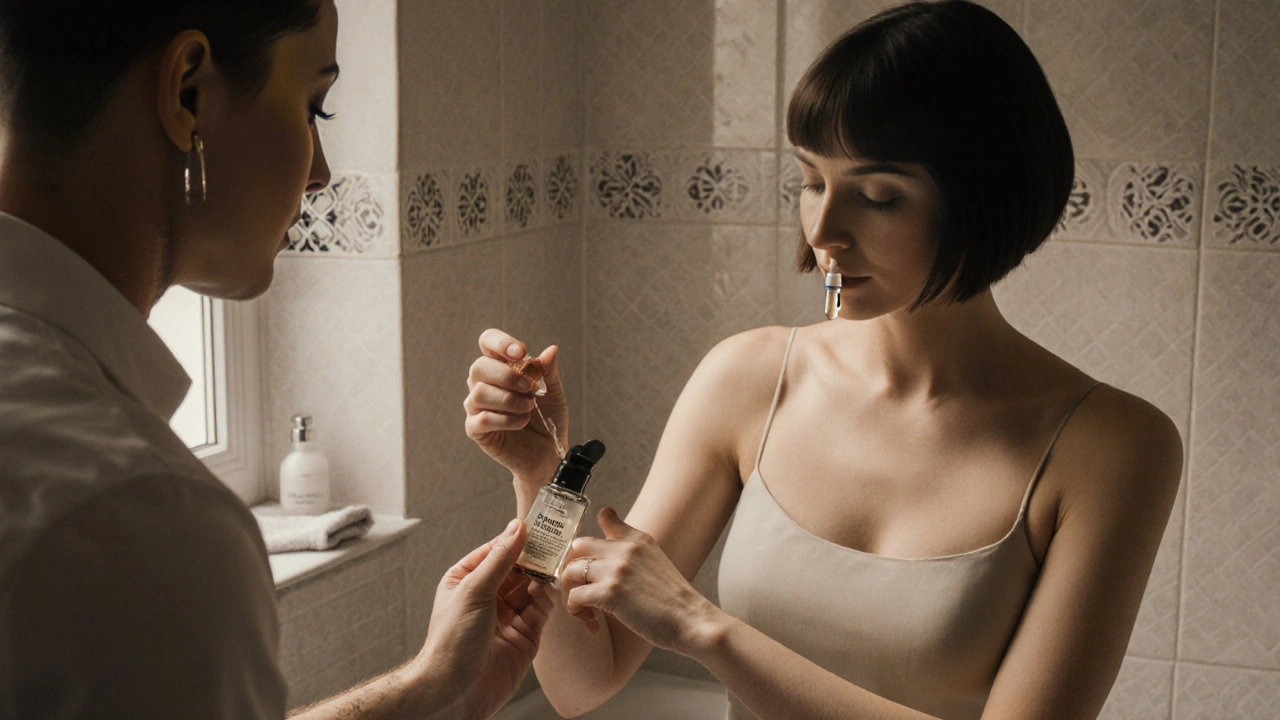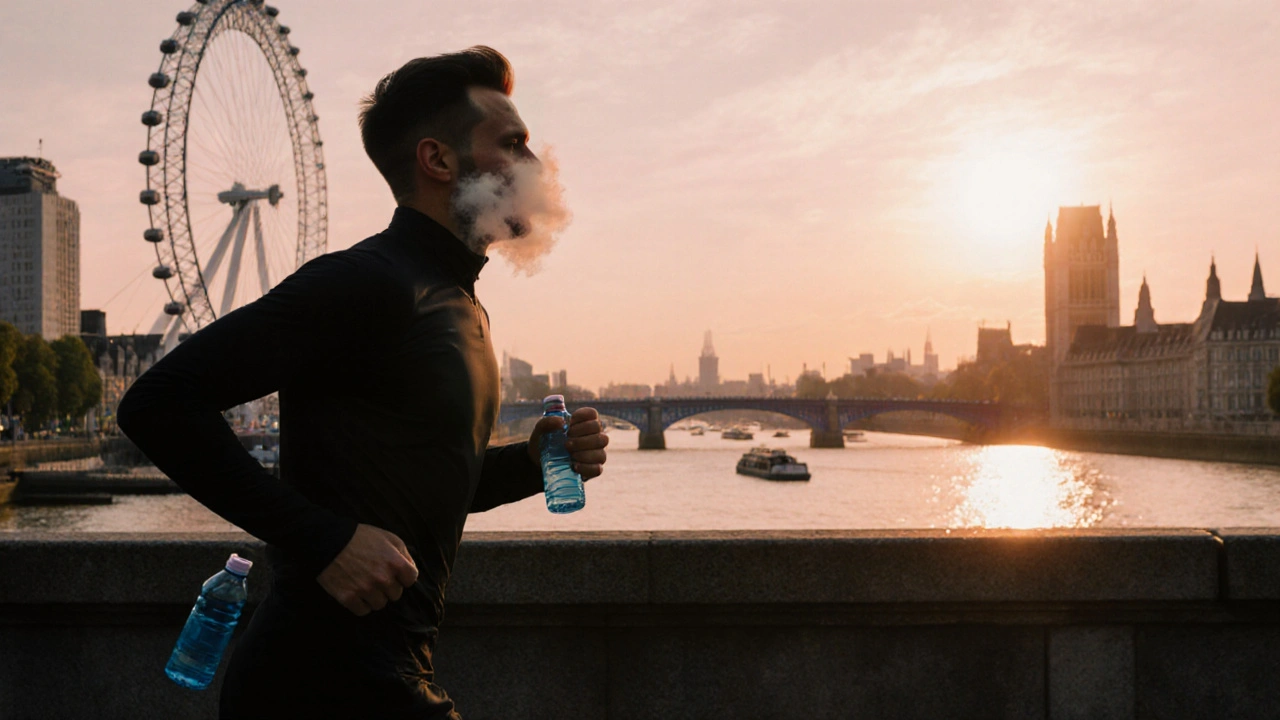Wrinkle prevention is a skincare strategy that aims to slow, reduce, or avoid the formation of fine lines and deeper folds on the face and neck. It works by protecting collagen, supporting elastin, and minimizing external stressors that degrade the skin’s structural proteins. If you’ve ever wondered why some people seem to age slower, the answer lies in a mix of daily habits, targeted ingredients, and the right protection against sun damage. This guide breaks down the science, hands‑on steps, and product choices you need to keep your skin looking fresh for years to come.
How Skin Ages: The Role of Collagen, Elastin, and the Skin Barrier
Two proteins keep our skin firm: collagen is a fibrous protein that provides structural support, while elastin gives skin its stretch and snap‑back ability. As we age, natural collagen production drops about 1% per year after age 25, and elastin fibers become fragmented. This loss translates into sagging and the appearance of lines.
The skin barrier is the outermost layer that locks in moisture and keeps irritants out. A compromised barrier lets water escape, leading to dry, crepey skin that accentuates wrinkles.
- Reduced collagen → thinner dermis → visible lines.
- Degraded elastin → loss of elasticity → deeper folds.
- Weak barrier → dehydration → accentuated texture.
Sun Protection: The Single Most Effective Anti‑Aging Weapon
Ultraviolet (UV) radiation is the chief external cause of premature aging, often called "photoaging." UVA penetrates deep, breaking down collagen, while UVB causes sunburn and inflammation that accelerate skin turnover.
Sunscreen is a topical product that filters or absorbs UV rays, preventing them from reaching the deeper layers of skin. Broad‑spectrum formulas with SPF 30 or higher block both UVA and UVB.
Key points for effective sun protection:
- Apply a nickel‑thin layer (about a pea‑size amount for the face) 15 minutes before heading outdoors.
- Reapply every two hours, or immediately after swimming, sweating, or towel‑drying.
- Don’t forget often‑missed spots: ears, neck, hands, and the tops of feet.
Studies from dermatology centers consistently show that daily sunscreen use can cut wrinkle formation by up to 24% over five years.
Retinoids and Peptides: Turning Back the Clock at the Cellular Level
Retinol (vitamin A alcohol) is the gold‑standard anti‑aging ingredient. It encourages new collagen synthesis, speeds up cell turnover, and smooths pigment irregularities.
Typical over‑the‑counter retinol concentrations range from 0.25% to 1%. Beginners should start with 0.25% to minimize irritation, then gradually increase.
Peptides are short chains of amino acids that signal skin cells to produce more collagen and elastin. Unlike retinol, peptides are gentle and suitable for sensitive skin.
- Retinol: strong collagen boost, best for night use.
- Peptide serums: subtle firming, can be layered morning and night.
Combining a low‑dose retinol at night with a peptide‑rich serum in the morning creates a synergistic effect-one builds, the other maintains.
Hydration, Antioxidants, and Hyaluronic Acid: Filling the Gaps
Moisture is the immediate enemy of visible lines. Hyaluronic acid (HA) is a humectant capable of holding up to 1,000 times its weight in water, plumping the skin and smoothing surface texture.
Antioxidants such as vitamin C, vitamin E, and green‑tea polyphenols neutralize free radicals generated by UV exposure and pollution. Vitamin C also supports collagen cross‑linking, making the newly formed collagen stronger.
Typical usage:
- Cleanse.
- Apply a vitamin C serum (10‑15% concentration) in the morning.
- Follow with a hyaluronic‑acid moisturizer to lock in hydration.
- Finish with sunscreen.
Clinical trials from skincare research institutes report a 12% reduction in fine lines after an eight‑week regimen of HA plus antioxidant serum.

Lifestyle Habits That Accelerate or Slow Wrinkles
Beyond products, everyday choices shape skin health:
- Smoking: Nicotine narrows blood vessels, reducing oxygen and nutrients to skin, and destroys collagen.
- Diet: High‑sugar meals trigger glycation, a process that stiffens collagen fibers. Incorporate omega‑3 rich foods (salmon, walnuts) and antioxidant‑dense produce.
- Stress: Cortisol spikes increase inflammation, breaking down collagen. Mind‑body practices (yoga, meditation) lower cortisol levels.
- Sleep: Deep sleep ramps up growth hormone, which assists tissue repair. Aim for 7‑9 hours.
- Alcohol: Dehydrates skin, reducing HA levels.
Minor tweaks-like swapping a nightcap for a glass of water-can preserve moisture and keep the skin barrier intact.
Building Your Daily Anti‑Wrinkle Routine
- Morning
- Cleanser - gentle, pH‑balanced.
- Vitamin C serum (10‑15%).
- Hyaluronic‑acid moisturizer.
- Sunscreen - broad‑spectrum SPF 30+.
- Evening
- Cleanser - optional double‑cleanse if wearing makeup.
- Retinol (0.25%-0.5%). Start 2‑3 times/week, increase as tolerated.
- Peptide serum - can be layered after retinol once skin calms.
- Richer moisturizer with ceramides to restore barrier.
Adjust frequency based on skin sensitivity; the goal is consistency, not intensity.
Ingredient Comparison: Retinol vs. Vitamin C vs. Peptide Serum
| Active | Main Benefit | Typical Concentration | Best Time of Day | Skin Types |
|---|---|---|---|---|
| Retinol | Stimulates collagen, accelerates turnover | 0.25%‑1% | Night | Normal, oily, mature |
| Vitamin C | Antioxidant protection, brightening, collagen cross‑linking | 10%‑20% | Morning | All, especially sensitive |
| Peptide Serum | Signals fibroblasts to produce collagen & elastin | 5%‑10% | Morning & night | All, especially dry or barrier‑compromised |
Choosing the right combo depends on your skin’s tolerance and goals. For a beginner, start with vitamin C and a lightweight peptide, then introduce retinol after a month.
Related Concepts and Next Steps
While this guide focuses on principal actives and habits, other topics deepen your anti‑aging knowledge:
- Glycolic acid - an AHA that exfoliates surface cells, allowing actives to penetrate better.
- Skin microbiome - a balanced bacterial community supports barrier function and may reduce inflammation that contributes to ageing.
- Ceramides - lipids that repair the skin barrier, enhancing the efficacy of moisturizers and serums.
Future reads could explore "The Science of Glycolic Acid for Smooth Skin" or "How a Healthy Microbiome Boosts Anti‑Aging Results." Each topic builds on the foundation laid here, creating a holistic skin‑care ecosystem.

Frequently Asked Questions
How often should I use retinol to avoid irritation?
Begin with 2‑3 nights per week, applying a pea‑size amount to clean, dry skin. After two weeks, if no redness or peeling occurs, increase to every other night. Full‑time nightly use is usually fine after 6‑8 weeks of gradual adaptation.
Can I skip sunscreen if I stay indoors most of the day?
Yes, UVB can still reach you through windows, and UVA penetrates glass. If you’re near a sunny window for long periods, a light SPF 15 sunscreen or a daily moisturizer with SPF is advisable.
Do antioxidants in serums actually prevent wrinkles?
Antioxidants neutralize free radicals that break down collagen. Clinical data from dermatology trials shows that daily vitamin C + vitamin E use can reduce the appearance of fine lines by about 10% after three months.
Is hyaluronic acid suitable for oily skin?
Absolutely. HA is a humectant, not an occlusive. It adds moisture without clogging pores, which can actually help oily skin regulate its own oil production.
What’s the best order to layer anti‑aging products?
Apply from thinnest to thickest: cleanser → watery serum (vitamin C) → peptide serum → hyaluronic‑acid moisturizer → sunscreen (morning). At night, swap vitamin C for retinol, then follow with peptide and a barrier‑repair cream.

Lief Larson
Sunscreen is non‑negotiable if you want to keep wrinkles at bay.
Julia Grace
i think daily SPF30 is like a superhero cape for your face it definetly beats the sun rays and keeps the collagen party going bright and smooth
Noah Bentley
Wow, you actually think “definetly” is a word? It’s definitely “definitely.” Also, “keeps the collagen party going” sounds like a bad rave description. Let’s stick to clear language.
Kathryn Jabek
While I appreciate your attempt at grammatical precision, your disdain for colloquial expression borders on pedantry. The skin‑care community benefits from both scientific rigor and relatable communication; dismissing one in favor of the other does a disservice to readers seeking practical guidance.
Ogah John
Isn’t it ironic that we spend fortunes on potions while the sun does the heavy lifting? If you ask the universe, it’ll tell you that a simple SPF is a tiny sacrifice compared to the existential dread of looking older tomorrow.
Kelvin Murigi
When it comes to anti‑aging, consistency trumps intensity, and that principle applies to every step you take in your routine. Start with a gentle cleanser that respects the skin’s natural pH, because stripping the barrier only invites irritation and premature aging. Follow with a vitamin C serum at a concentration of 10‑15 percent; this antioxidant not only brightens but also stabilizes newly formed collagen fibers. After the serum, a hyaluronic‑acid moisturizer locks in moisture, creating a plump canvas where fine lines are less visible. The final barrier in the morning is a broad‑spectrum sunscreen of at least SPF 30, applied generously to all exposed areas. In the evening, introduce a low‑dose retinol-starting at 0.25 percent-to stimulate cell turnover without overwhelming sensitive skin. Patience is key; retinol can cause temporary redness, but this subsides as the skin acclimates. Complement retinol with a peptide serum, which signals fibroblasts to replenish elastin and collagen in a gentler manner. Incorporate ceramide‑rich creams at night to repair the lipid barrier that sunscreen and actives can compromise. Remember to stay hydrated throughout the day; internal water balance reflects on the surface as skin elasticity. Nutrition matters too-omega‑3 fatty acids, abundant in salmon and walnuts, provide anti‑inflammatory benefits that support skin health. Avoid smoking entirely, as nicotine accelerates collagen breakdown and impairs microcirculation. Limit alcohol consumption because dehydration reduces hyaluronic‑acid levels, making lines more pronounced. Manage stress with mindfulness or yoga; cortisol spikes are notorious for degrading collagen. Aim for 7‑9 hours of quality sleep, during which growth hormone orchestrates tissue repair. Lastly, adjust your routine based on how your skin responds, because individualized care is the ultimate anti‑aging strategy.
ahmad matt
Sure, all that “science” sounds nice but most people can’t even afford a decent moisturizer let alone retinol or peptides so your “ultimate guide” is basically a rich‑people fantasy
kristine ayroso
yeah i feel u but try starting small maybe a drugstore SPF and a simple moisturizer first its better than doing nada and watching your skin betray you later
Ben Small
Let’s get moving on that routine!
Dylan Hilton
Great enthusiasm! Just a quick note: “Let’s get moving on that routine!” is perfect; keep up the positivity.
Christian Andrabado
All this hype feels exhausting.
Chidi Anslem
While the abundance of tips can seem overwhelming, each recommendation addresses a specific facet of skin health; selecting the elements that align with your lifestyle can transform the process from burdensome to empowering.
Penn Shade
In reality, the efficacy of any anti‑aging regimen hinges on the individual's genetic predisposition, which no topical regimen can fully override.